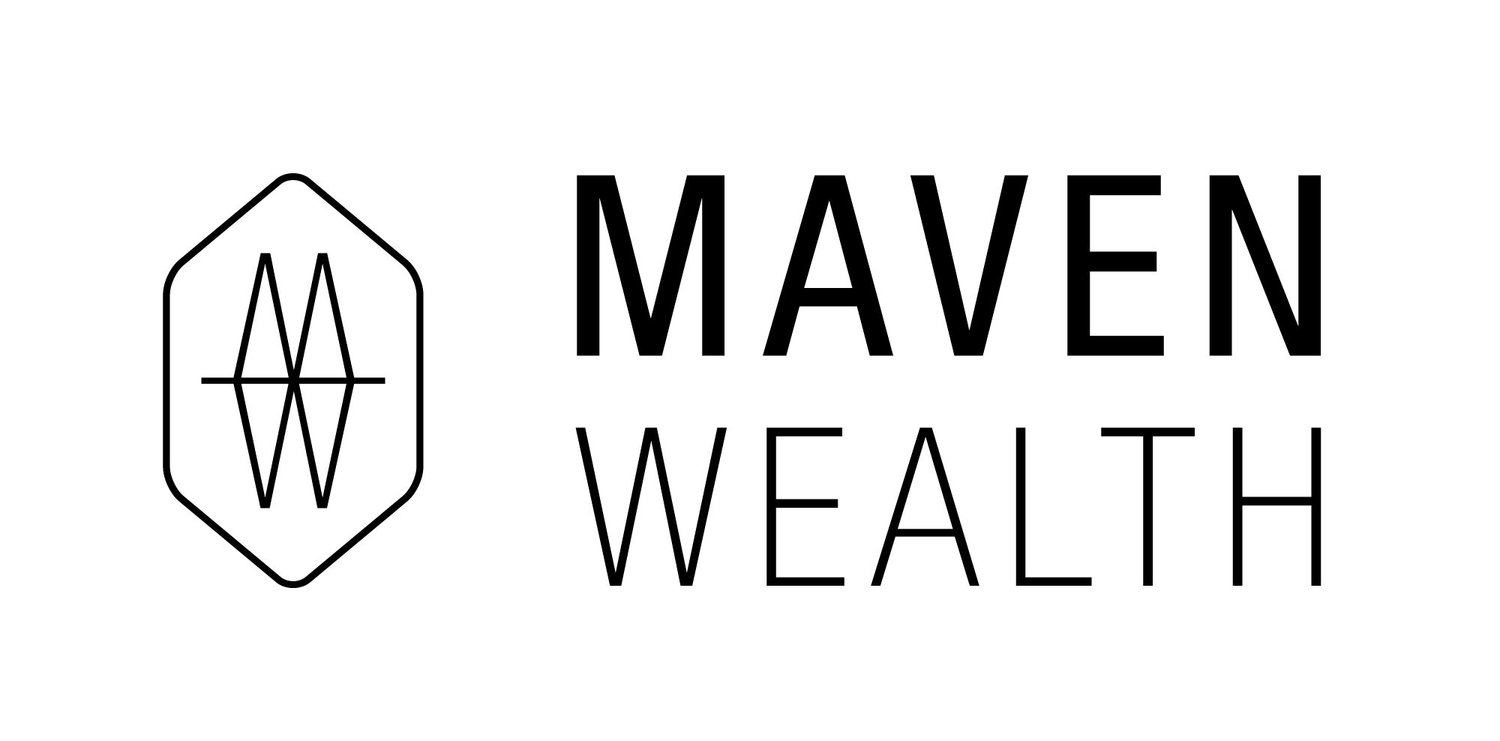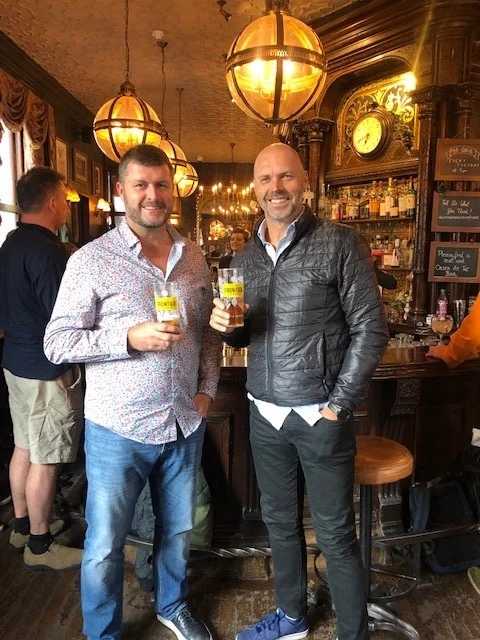London Calling 2019....Version 4.0
The preparation for our annual offshore trip was a lot more organized than in 2018, in that this year Andrew arranged his visa with a three-week buffer period. Our Airbnb was once again secured well in advance, and all that remained was for us to get to London and soak up the opportunity to meet with a cross section of Global fund managers. The agenda for this year was to expose ourselves to either fund managers or asset classes that were not currently in our consideration set or part of our current solutions. Once again, we were not disappointed.
The timetable and meetings were arranged by Fundhouse . . . as a team effort, between their London and Cape Town offices. This was one of the original factors that attracted us to them, as we knew that we would require a seamless solution of both local and offshore solutions to meet our clients needs. It has been fascinating to watch the growth of the London office over the 4 years. The size of the team has ramped up from 2 people to 7, the coverage of funds from 50 to 300 and most importantly the reputation that they have built, and therefore access they have to Fund Managers, has become the envy of the competition in London. (An example of this was the willingness of a US Manager – Sands Capital – to travel to the UK for a meeting with us during the week.) When questioned by us on their relationships with Fundhouse, the fund managers feedback was always very positive: the due diligence processes they run are honest, objective and add huge value to the fund managers themselves. They are being approached more and more by substantial offshore advisors to be their Discretionary Fund Manager as their reputation becomes further entrenched. It helps that they are salt of the earth people as well!
Meeting with Sands Capital, US fund managers at The Lanesborough Hotel
Investment Themes to Consider
China: looms large on the radars of most Fund managers – some very bullish whilst others are apprehensive. It just so happened that our visit coincided with the Trade Wars between the US and China, which made this issue very topical. The conundrum facing many global managers is, “What does China look like in 10 years?”.
Currently China makes up only 4% of the MSCI Worldwide Index (compared to 53% for the US). This seems to be in complete contrast to the relative weighting of its economic importance globally, where it makes up 18% of global GDP relative to the US’s 15%. Importantly from a future perspective, Chinese students make up 35% of the global STEM graduates (science, technology, engineering, mathematics) compared to 5% from the US and hold 42% of the world’s patents (again compared to 18% in the US). This is no longer a ‘copycat’ economy! As the MSCI relative weighting increases, the relative holdings of global managers will have to increase furthering the case for a significant allocation to China. In addition, the swing to “new economy” tech driven businesses like Alibaba, Tencent and JD.com have supported the case for Chinese equities. However, counter-balanced against this are several issues an investor will need to consider. Some of these being:
· The lack (or perceived lack) of transparency, governance and compliance
· The limited access to good investments (although these are increasing) via the complicated holding structures imposed on non-Chinese investors
· The size and quality of the potential market – the consideration set is a pool of over 7,000 companies.
· Language challenges.
We will work with Fundhouse to answer the question: Do we access China directly in a specific China Fund; or do we do as part of an emerging market exposure? We are clear that we don’t want to do so via an Exchange Traded Fund – where State Owned Enterprises make up >50% of the Chinese index. Investing in China will require specific knowledge of the market rather than a ‘spray and pray’ approach. Lots to think about and process.
Private Capital: We had a fascinating morning with several teams from Schroders at their new offices on London Wall (recently opened by the Queen!). Schroders is a listed global Investment manager, with a significant shareholding still controlled by the Schroders family. They manage in excess of USD 536 billion (that is ZAR 7.5 trillion which is in excess of the market capitalization of the JSE Top 40 companies) and employ over 5,000 people worldwide. The session with the “Private Assets” team was hugely insightful. There appears to be a trend that companies are no longer listing to raise capital, but rather doing so in the Private Capital market – through debt and/or equity. In this way they do not have to face the challenging environment and exposure that a listing brings to management. It is a hot topic now – given some of the returns being experienced by managers – but the challenge is how do we get access to these markets for our clients as they are typically fairly illiquid and ideal for institutional investors. There are solutions for the individual investor, but these are typically very expensive and not well established. Hence another topic that makes it onto the “To Do” list to research.
Views from the new Schroders offices
Observations: Our last few observations from an investment viewpoint are as follows:
· Value, as a style for investment management is very difficult to find at present in London. It is a style that investors are familiar with in the SA context given the make up of the SA equity market. But true value managers in the UK are few and far between. Most managers have a ‘value’ metric, but it is always trumped by the quality metric. Something that we do not have the luxury of in South Africa!
· Warren Buffet and his philosophies have a resounding following in the managers that we met on this trip. The idea of finding a quality company that can compound its earnings over the very long term and then buying it at a reasonable price, resonated amongst many managers we spoke with. This makes sense but is important to be considered in the context of a portfolio view. The last thing we must do for our clients is to create a solution filled with essentially the same philosophy managed by different names.
· Volatility is often used as the measure of risk within a portfolio. The higher the volatility (ie the frequency and variance of asset prices) , the higher the risk of the underlying investments. This is classic investment theory that is eschewed by the managers we encountered. Their thinking, which thankfully aligns with how Andrew and I think, is that the permanent loss of capital is the correct risk measure.
Other Notes from 5 days in London:
· London seemed to be less busy than our last trip – there were less people on the pavements and in the pubs (although you will always find someone in a pub!) Brexit may be the cause on some of this, but apparently another is the migration of local citizens out of London to smaller centres, given their inability to afford the cost of living.
· Brexit continues to occupy a lot of time, energy and column inches! However, there is an overwhelming feeling from the people on both sides of the vote that they feel let down by the government
· Construction seems to have cooled considerably. We did spend a session with a developer who does bespoke residential investments in South West London, who says that he is still very busy (one of his projects is targeting the serviced short-term let apartments). But as for the massive constructions with many cranes we had referred to before … these appear to have been delivered and not replaced with new projects.
· The locals get massive utility and enjoyment from their public spaces – no matter how big or small. Given that we were staying 150 metres from Hyde Park we witnessed first-hand the sheer number of people walking, riding, jogging and just enjoying the weather and fresh air. It saddens me when one takes a walk-through Company Gardens, how unkempt and dirty and riddled with crime that it is. We have a way to go.
· Restaurants . . . it continually astounds me as to how many options one has if you wish to eat out. From the simplest sandwich and juice bar to the many Michelin restaurants …. the choice is endless. The number I have come across (using Google) is 39,338 food service establishments – and this number feels light. It does introduce cut-throat competition and we were amazed to see this week that a restaurant we ate at just last week – Jamie Oliver’s Barbecoa @ St Pauls – has now been placed under administration!
· Enablement of goods/ services/ products through other platforms. For example, the simple technology of our door handle for the Airbnb that opens with a specific code versus having to exchange keys.
· Legislation of some of these platforms can be used for good outcomes. For example, the implementation of an emissions tax in the city has led to many Uber vehicles & buses to be electric/ hybrids. The company that can win that race (and driverless cars) will have a significant outcome!
Finally, our trip has reinforced our belief that it adds great value to us and ultimately to our clients. The ability to sit in front of managers and question their thinking and process directly (as opposed to via a fact sheet), as well as to evaluate their relative abilities is a privilege, but also a differentiator. It provides a global view and allows us to have some fun at the same time!




